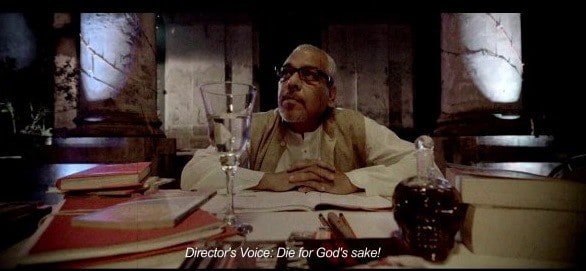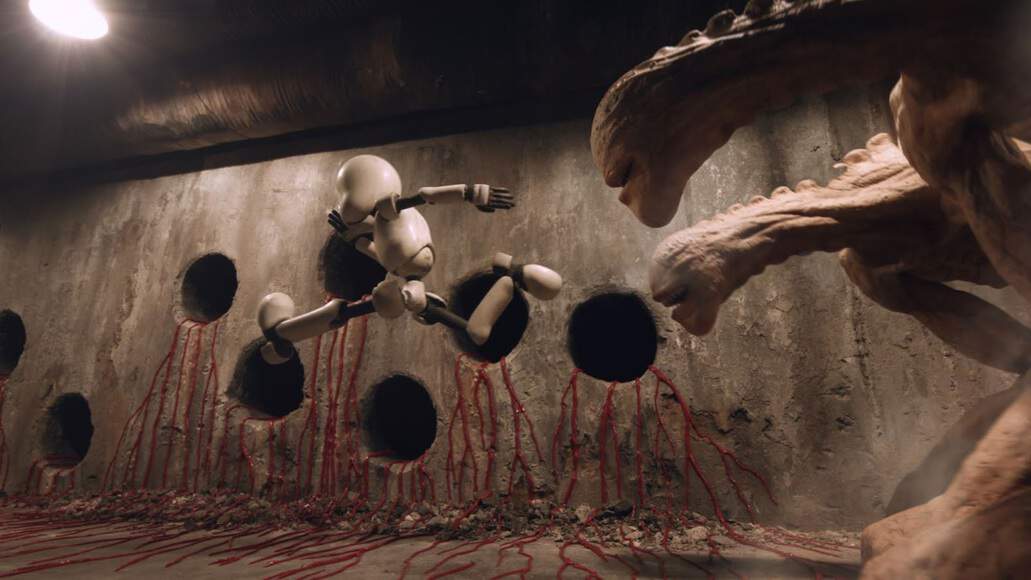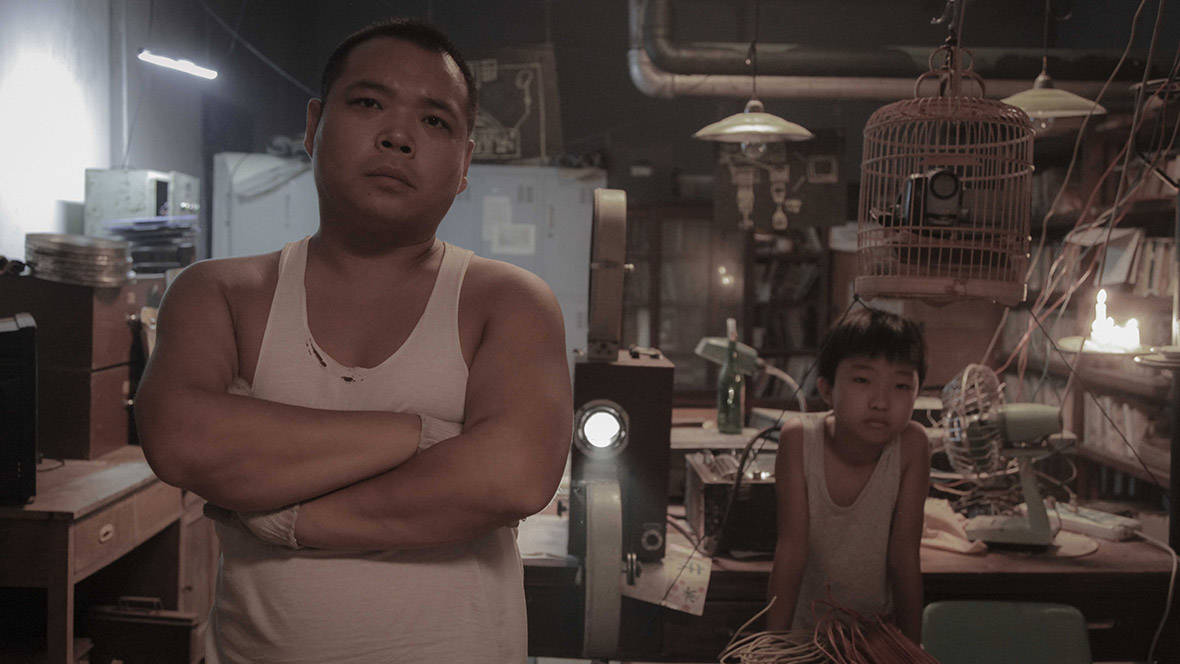As I have mentioned in various articles over the years, I have watched (and enjoyed) a number of extreme (I really want to say f*cked up) movies, from worm eating splatters to koala executives and everything between (if you can imagine what could be between those two). I have to say, though, “Ghya Chang Fou” is one of the weirdest, most extreme and most unique films I have ever seen.
The movie begins with a procession of people walking through some dark alleys holding balloons , in a style much like a circus troupe. Soon the group arrives to a majestic old building, where a table is set for them to sit. What follows is: they sit, eat and drink, reveal they are celebrating the Communist revolution, they talk and argue about the history of Communism, they get drunk, time and reality lose their meaning, violence, quite graphic depiction of sex, incest, and some BDSM to conclude the “narrative”, all the while under either dialogues or narration regarding communism.

Joyraj Bhattacharya directs a film that unfolds as a stage play with 13 characters, particularly because it takes place in a single location for the most part, while we frequently hear the voice of a man who seems to be the director of the play, as Bhattacharya “breaks the fourth wall”. The title of the movie means ‘suddenly beheading' in Bengali, adding another level of f*ckedupdness in the whole narrative, which seems to have something to do with Marxism in Bengal (which I will not pretend to know anything about, you can read the following article if you want to know more about this aspect of the film: https://kafila.online/2018/12/25/beheading-marxism-unleashing-desire-ghya-chang-fou-and-the-marxist-unconscious/.
On the other hand, the comments about the differences between intellectuals and “common people” and the differences between caste and class are quite eloquently presented, through a number of pointy dialogues, although the sociopolitical paths the film takes are many, and very hard to read due to the completely allegoric setting.

In essence, the film can be placed somewhere among Plato's “Symposium”, Boccaccio's “The Decameron” and De Sade's “The 120 Days of Sodom”, ending up as a black sex comedy about desire and its domination over all aspects of life.
Basab's cinematography compliments the film's aesthetics to perfection, inducing it with a number of impressively lighted sequences in the dark, while the framing manages to follow both the rules of the documentary and of the sex film, alternately. Bodhaditya's editing implements the lack of borders between reality and dream quite nicely, through an episodic presentation that retains the sense of disorientation for the whole narrative.
One could analyze the various scenes and dialogues in the film to death, since the narrative seems to have a number of layers, but I will simply say that if you like extreme, different movies and have the stomach for them, you cannot go wrong with “Ghya Chang Fou”.















